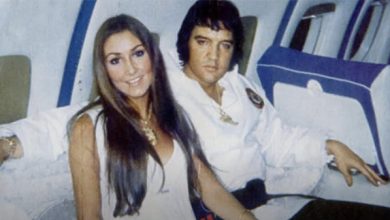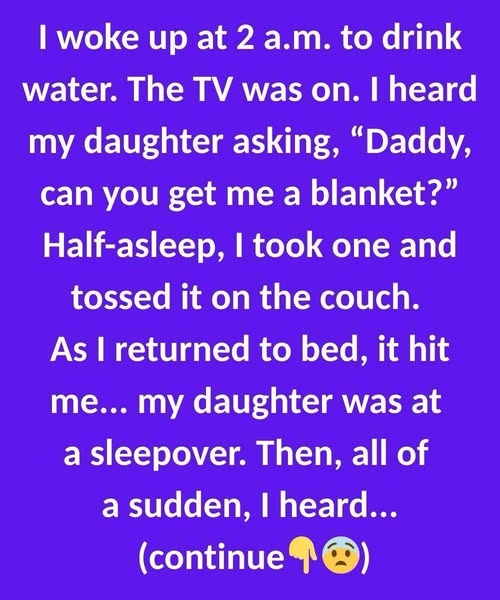
I Sat Alone as My Mother-in-Law Took Her Last Breath, Then a Nurse Gave Me Her Final Letter
I Sat Alone as My Mother-in-Law Took Her Last Breath, Then a Nurse Gave Me Her Final Letter
The monitor flatlined at 3:42 p.m. on a quiet Tuesday. I sat in silence, my fingers still wrapped around Rachel’s cooling hand. Alone in the sterile room, I realized I was the only one who had stayed to witness my mother-in-law’s final breath.
A nurse appeared in the doorway, clipboard in hand. Her eyes held the quiet compassion of someone who had seen death often, yet hadn’t become hardened by it.
“Are you alright, Mrs. Emerson?” she asked gently.
I nodded, my throat tight with emotion. Beyond her, life moved on. Families embraced doctors. Children carried balloons. Old couples whispered in waiting room corners. But in this small room, time stood still.
“I called them again,” I whispered. “David and Karen. They said they’d come.”
The nurse gave a knowing look. She’d seen me on the bench day after day—leaving voicemails, sending texts, always hoping footsteps in the hallway would be theirs.
“Some people can’t face goodbyes,” she murmured. But we both knew this wasn’t fear—it was indifference.
“I should call the funeral home,” I said, reaching for my phone, where three missed work calls blinked back at me. Not a single one from David or Karen.
“Wait for the doctor to sign the death certificate,” the nurse said, gently guiding me back to the chair. “But Rachel left something for you.”
She pulled a weathered envelope from her pocket, Rachel’s handwriting scrawled shakily across it. “She told me to give this to you after she passed. She was insistent.”
My hands trembled as I took it. Rachel had always been polite, if distant, in the five years I’d been married to David. What could she possibly want to say now?
Inside the envelope was an old key and a haunting note written above an unfamiliar address: They never loved me. Now they’ll understand being left behind.
“Is everything alright?” the nurse asked, watching my face.
“Yes,” I lied. “Just her final words.”
I signed the release forms and collected Rachel’s few belongings—a tattered robe, worn glasses, and a half-finished manuscript. Outside, the world buzzed on. Babies cried, bouquets were passed around, and families loaded up cars. My life, however, stood still.
I sat in my car for twenty minutes before starting the engine. Images from Rachel’s final days flooded my thoughts—her quiet stares, her hushed voice, the sense she was waiting for something… or someone.
Back home, I saw David’s name flash on my phone as I hung up my coat. Relief and resentment surged together.
“Hey,” he said casually. “You heading home soon? We’re out of groceries.”
I steadied myself on the counter. “Rachel died today.”
A pause. “Oh. When?”
“3:42. You’d know if you’d answered.”
“We were in meetings. You know how it is. She was always difficult anyway.”
I ended the call. The house felt hollow. Bills sat like ghosts on the kitchen table. Rachel’s letter still pulsed in my hand.
That night, David came home late, said nothing, and left before sunrise. I didn’t sleep. At 7 a.m., I got dressed, entered the address into my GPS, and drove.
Thirty miles later, a dirt road led me to a hidden property behind overgrown weeds. A creaky gate opened to reveal a weathered house draped in thorny rose bushes. I used the key. The door swung open effortlessly.
Dust danced in sunbeams. Books lined old wooden shelves. Vinyl records rested on a table. Rachel’s presence lingered in the lavender-scented air. This, not the nursing home, was her real sanctuary—and she had shared it with me.
On the kitchen table, another envelope waited. Charlotte Reed, Attorney-at-Law. I dialed the number.
“Reed & Associates,” came the voice.
My name is Lauren Emerson. My mother-in-law Rachel passed yesterday. She left your contact.”
“Yes, Ms. Emerson,” the voice softened. “Rachel was a remarkable woman. Can you come in tomorrow?”
“Should I bring the envelope?”
“Absolutely. And Rachel requested David and Karen be there too. In person.”
That night, I told David. He rolled his eyes. “I guess I’ll tell Karen.”
The next morning, we drove to Charlotte’s office. Karen waited outside, cigarette in hand. “This better be worth missing work for.”
Inside, the firm was bright and quiet. Two elderly women, Judith and Marie—church friends of Rachel’s—were already seated.
Charlotte opened a folder. “This is Rachel Emerson’s final will, updated two months ago.”
David looked at his phone. Karen scoffed.
“To my son, David,” Charlotte read, “I leave my forgiveness, though it was never earned.”
The room froze.
“To my daughter, Karen, I leave my wedding ring. May it remind you of promises once made.”
Karen flushed.
“To my dear friends Judith and Marie, $5,000 each for your companionship and kindness.”
They blinked in disbelief.
“And to my daughter-in-law, Lauren, I leave the remainder of my estate: the house at 92 Maple Hollow, all financial accounts, and personal effects.”
Stunned silence followed.
Karen exploded. “She barely knew her!”
David barked, “She manipulated her!”
Charlotte remained composed. “Rachel was evaluated for competency. Her instructions were recorded on video.”
David turned pale. “How much is it?”
“The house is worth around $300,000. Investments and insurance total approximately $420,000.”
After the meeting, Charlotte handed me another sealed note. Alone, I opened it. Forgive no one. Let them beg. Let them kneel. Then walk away.
“She trusted you,” Charlotte said. “She gave you her voice.”
Back home, I told David I’d be staying at the cottage. His demeanor shifted instantly. “Of course, sweetheart. Whatever you need.”
I shuddered.
At the cottage, I found Rachel’s journals. Her sharp, lonely voice filled the pages. She wrote of Karen’s coldness, David’s debts, forgotten birthdays, and empty holidays.
Made turkey. Set four places. No one came. Karen texted. David didn’t even call.
Karen later filed a lawsuit claiming I’d unduly influenced Rachel.
“I expected this,” Charlotte said. “We’re ready.”
In court, Rachel’s recordings left no doubt. The judge dismissed the case and ordered Karen to pay court costs.
That night, David drunkenly raged. “She turned everyone against me!”
“No,” I said. “She just wanted to be seen.”
“You manipulated her.”
“No. I listened.”
“I did everything for you!” he shouted.
“I’m leaving. Talk to my lawyer.”
“You’re serious?”
“Dead serious.”
A few weeks later, he begged me for a $5,000 loan.
“Rachel left you nothing,” I said. “I respect her decision.”
“You’re heartless.”
“No. I’m done enabling.”
Karen’s voicemails went unanswered.
Spring came. I renovated the cottage with soft paint, fresh flowers, and a carved sign above the door: Rachel’s Refuge.
With Charlotte’s help, I started a foundation—grief support groups, shared meals, a safe place for the forgotten.
A local paper wrote a piece about us, featuring a painting of Rachel and her husband laughing under an oak tree.
I published my first book: The Letter That Freed Me.
David moved to Nevada and remarried. Karen took a night job. I stayed silent.
At last, I understood Rachel’s final lesson: Smile. Turn. Walk away.
I placed flowers under the old oak. “You were never forgotten,” I whispered. “And now, neither am I.”
The breeze lifted around me. And for the first time, I felt peace—not from what I’d been given, but from what I’d built.




